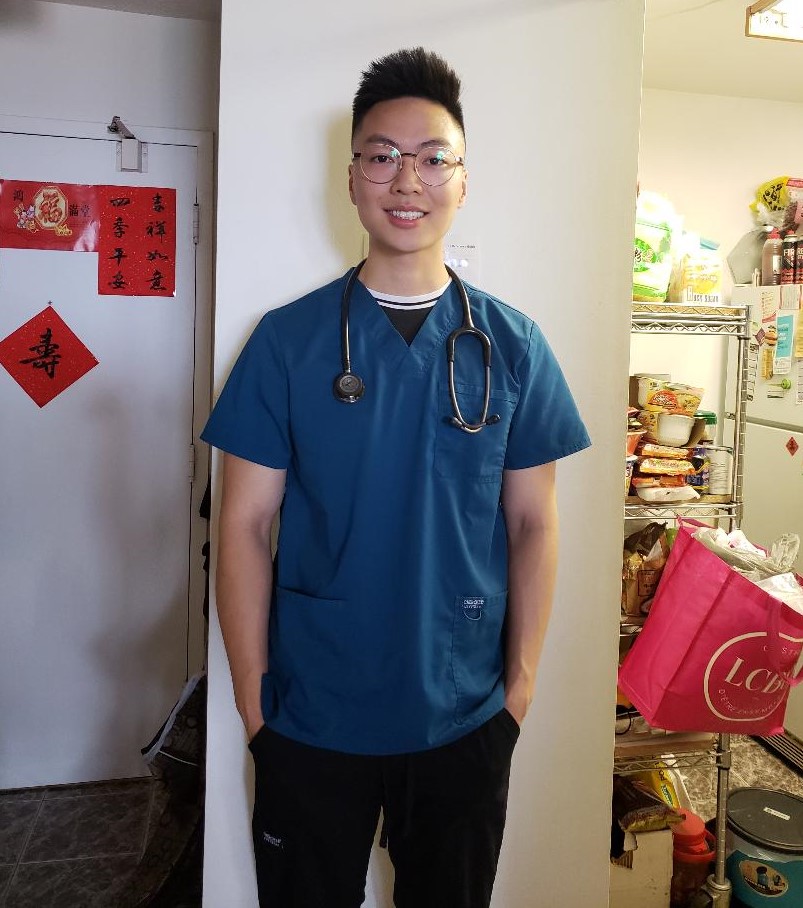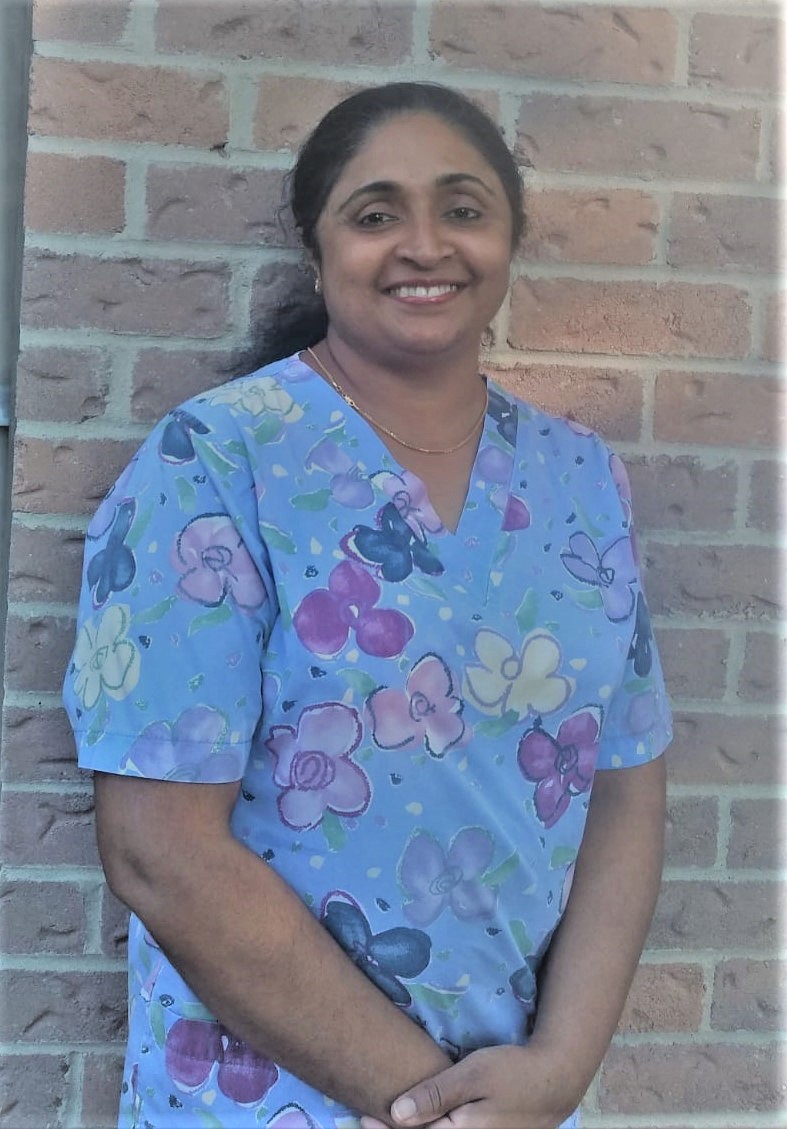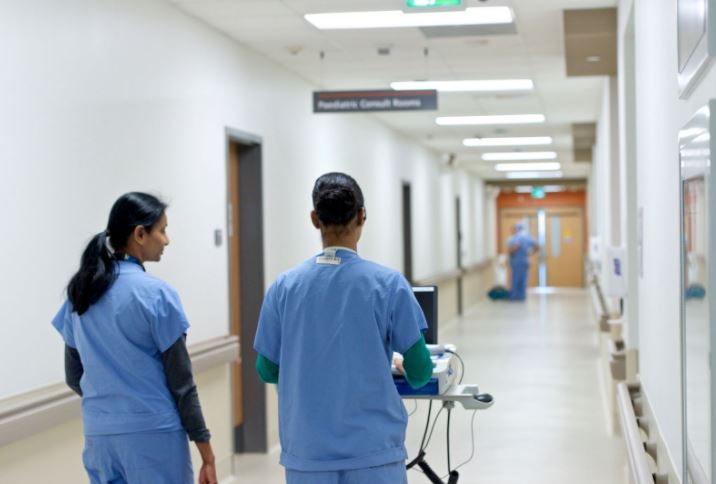The COVID-19 pandemic has laid bare the risks nurses face each day as they care for patients while protecting themselves from this highly contagious coronavirus. The latest census figures show that a quarter of Canada’s more than 300,000 registered nurses are immigrants, many of whom are independent contractors without support systems.
In Ontario, about 6,000 health-care workers have tested positive for COVID-19. As of yet, there is no breakdown of who has gotten sick, but Doris Grinspun, CEO of the Registered Nurses Association of Ontario, says it’s likely a large proportion comes from the nursing ranks.
Grinspun says nurses have had to contend with a shortage of resources since the outbreak began.
“(Nurses) will take care of patients in good, challenging and horrific situations, but they should be protected. Just like we protect our soldiers on the frontlines, nurses also need to be protected with basic things like PPE, testing and enough staff,” said Grinspun.
Immigrant nurses may be under even more stress, as more of them are employed by private health-care agencies that pay lower wages without benefits.
Birgit Umaigba, 32, a critical-care nurse in the Greater Toronto Area, says the biggest challenge at work has been dealing with personal protective equipment (PPE), which often makes her feel as though she is suffocating. The strict guidelines for putting on and removing gloves, masks, face shields and gowns protect her from being exposed to COVID-19, but Umaigba worries that these measures, which take three to five minutes each time, slow her response to patients who require quick action in life-and-death situations.
“For a patient in an emergency, it makes a big difference if I have to remove the PPE, wash hands, step out, seek help… and then come back in and repeat the process,” says Umaigba. “It’s nerve-racking.”

The pressure of working as a nurse during the pandemic extends from the hospital into the home. After one of her patients tested positive for the virus, Umaigba had to go into isolation at home for two weeks, which was a challenge, as she had no one to help her at home. When Umaigba told her daughter that she couldn’t hug her, her only child burst into tears.
“That was the toughest time. I live with my nine-year-old daughter and I had to move into a separate room. I would wear a mask and gloves, cook her meals and sanitize after me, but when my daughter asked for a hug, I couldn’t. That was the worst part. Enduring it for 14 days was really taxing,” Umaigba said.
The Nigerian-Canadian nurse says a professional support system for all nurses is needed during the pandemic.
“I work as an agency nurse, and it feels like no one cares for us,” she says. While unionized hospital staff gets access to mental-health services, Umaigba does not get benefits because she is employed by a private health-care agency that provides temporary staff to hospitals.
“It would be nice to have a support system for nurses who are taking care of COVID-19 patients. People are starting to break down and calling in sick. There is no support system for us at all, no one to call and talk to for comfort,” she says.
Without access to a support system at work, Umaigba relies on her Christian faith community to keep her spirits up during these tough times. After the pandemic was declared, church services were moved online, allowing members to meet virtually to encourage each other.
“We comfort each other and feed each other spiritually. My community—they are my relatives and my siblings here; they have always been there. That’s where I find my spiritual uplift,” says Umaigba.
Ricky Cheng, 22, a cardiology nurse with the Scarborough Health Network, is worried about the impact of the pandemic on the patients that he doesn’t see. He worries many people who need medical help are avoiding hospitals because they are afraid of contracting the virus.
“There are a lot of people without COVID-19 who are sick, with comorbidities. Our fear is we wouldn’t be able to help them.”
Cheng says that, at the height of the pandemic, staff felt overwhelmed as the death rate climbed and the number of COVID-19 patients increased.

In the early weeks of the pandemic, the hospital where Cheng works had a shortage of PPE. He watched as colleagues broke down in tears because they feared the act of caring for their patients would put their loved ones in danger. As the pandemic drags on, Cheng says health workers need reassurance that they will have the necessary equipment to keep themselves safe.
“We all have families that we love and care for, but if we can’t have basic protection, then anyone would be stressed and paranoid,” he says.
Strict hospital infection control policies and their impact on patient care are also a concern for Leni Biju, a cardiology nurse in Oshawa, Ont.
Because of the risks of COVID-19, nurses are told to provide just essential care, limit contact time and exit the patient’s room within a few minutes.
“How can you leave when someone is lonely and distressed?” asks Biju, 46, who has worked in India and Dubai as well as Canada.

She also credits her faith in overcoming the mental stress of caring for patients during the pandemic.
“Fear is a killer. Fear even comes in the way of compassion,” says Biju, adding that she has tried to put patients’ needs ahead of her own concerns, and stayed with patients beyond the recommended length of time in order to comfort them.
“You can’t live in a fearful situation. I was not afraid to take care of COVID-19 patients, as I believe God would take care of me.”
Photos provided by Birgit Umaigba, Ricky Cheng and Leni Biju
This story is a part of the “Immigrants on the Frontlines of Fighting COVID-19” series made in partnership with The Canadian Press.
Minu Mathew is a writer and communication consultant who has worked closely with brands like Philips, 3M and Microsoft. She has a book of poems titled ‘In the Garden of Rain’ published on Amazon. Minu has lived in India, Sweden, US and UK. She currently lives in Toronto, Canada with her husband and two children.






Just checking the media report about the 6000 cases in Ontario, it does not mention they are all health care workers?